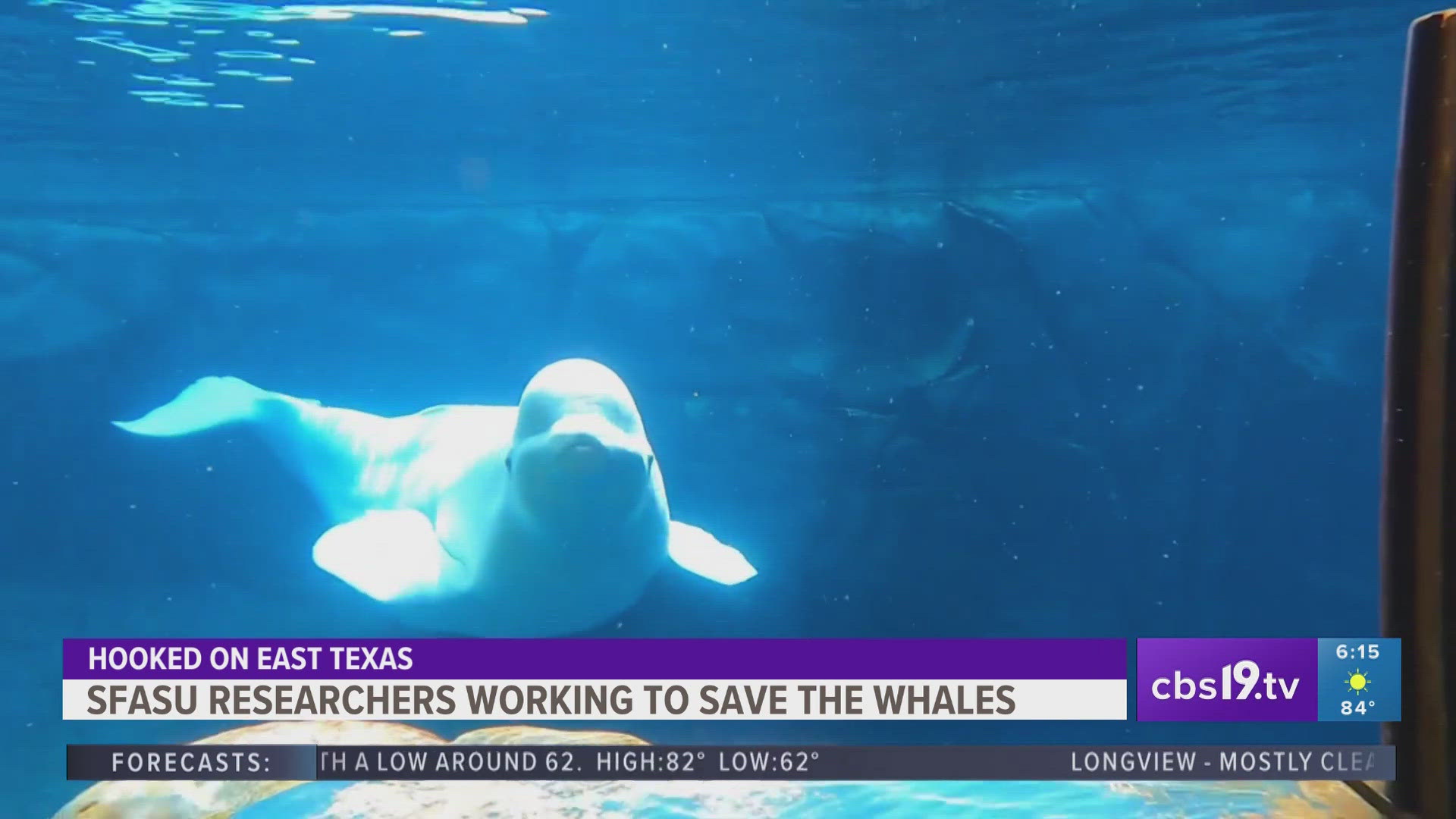NACOGDOCHES, Texas — Stephen F. Austin State University researchers are front and center in an effort to save a type of whale that has been on the endangered species list since 2008.
In this week's Hooked On East Texas, we're going inside the Bruck laboratory at SFA, where ongoing research hopes to save the whales. It’s a whale of a tale into new research on Beluga whales. And Stephen F. Austin State University professors and students are playing a huge part.
Sonny Schoenhoft, a graduate biology student from Illinois, described the research like this, "we basically were looking at the vocal repertoire of the beluga whales at the Georgia Aquarium."
In other words, researchers want to know how beluga whales talk to each other.
“So we were playing back their vocalizations to them to see, from their point of view, what they saw as same or different," Schoenhoft said.
Students, along with researchers, spent the summer at the Georgia State Aquarium. There they played sounds of whales recorded from an earlier trip to the same aquarium.
“We're actually able to play sounds back to the Belugas and ask them how they perceive the different calls of their own system. So, it's kind of like a Rosetta Stone trying to figure out all the different ways Belugas can communicate with each other," said Dr. Jason Bruck, one of the lead scientists on the project.
Scientists spent weeks playing sounds to the whales using underwater speakers. They played three sounds that were the same. But the fourth was different.
“So with them, we did, like an example would be three whistles in a row. So it would be like a clean, straight whistle. And then the fourth would be more of like a chirp pulse," Schoenhoft said.
The sounds played didn’t require high tech equipment. Instead, biology student Matt Crandall used a modified iPod classic to catalog, then play back the sounds.
“And the reason why we have to use a special iPod is because it plays at a higher sampling frequency so that they can hear the noises that we can't necessarily," Crandall said.
Back at the Bruck Lab on SFA’s campus, the data collected over the summer is analyzed on spectrographs. The data ultimately could shed light on why communication is so important to survival.
“So it's definitely a very big role to understand what they're saying, how they're saying it, when they're saying it, who they're saying it to and understanding how that's impacted from humans," Schoenhoft said.
Bruck said human impacts are a major concern with all whale species. The biggest human impacts include shipping. This study looks to understand and offer solutions to how boat noise can negatively affect whales.
“We do know that a lot of whale species have to either become really quiet when human boats come around and they can't communicate through the noise, or they have to try to scream over it, which can biologically tax them," Bruck said.
Added stress means bio-accumulated toxins, such as mercury or other chemicals found in the food whales eat, could leak from a whales’ blubber to its bloodstream. That can harm whales. It’s why Aaron Chanmysay is concerned.
“Just human impact is a huge deal, and it just kind of gives us a better glimpse on what we need to be more responsible about, more aware about. And I just think that educating the general public is just a really important thing,"Chanmysay said.
And it proves research like this is truly sound.
“And so drones and acoustic recording technologies are the new ways that scientists are being able to determine what's happening to those animals when we can't see them all the time from a boat," Bruck said.

